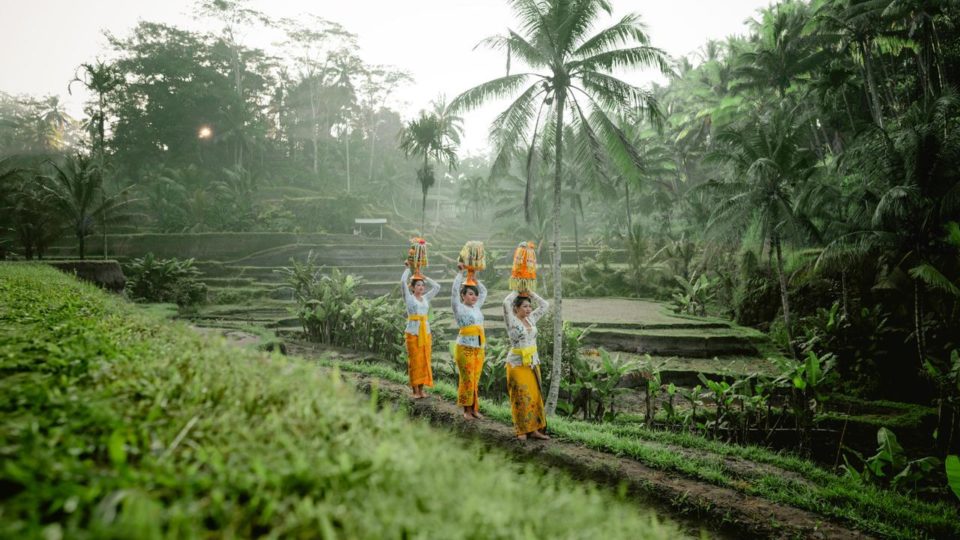Indonesian officials are planning to establish so-called COVID-19 “green zones” in Bali as part of a larger plan to reopen to mass tourism, but public health experts say the strategy is not feasible with the province’s current handling of the pandemic.
“[Establishing] green zones is not feasible,” Dicky Budiman, an epidemiologist from Griffith University Australia, told Coconuts.
“We have to be very aware that the situation in Bali is not under control [in regards] to the pandemic, that’s very clear. Whether the government will accept this or not, as an epidemiologist and expert I can say that’s very clear.”
According to Dicky, Bali must accomplish a number of steps before reopening to mass tourism, especially if the province is to welcome foreign visitors, noting that strict implementation based on a scientific and public health approach is crucial.
Meanwhile, Head of Udayana University’s School of Public Health I Made Ady Wirawan also pointed to several factors in Bali’s current handling of the public health crisis that dampens the feasibility of a zoning system.
“With the low rate of testing and tracing, and high positivity rate, a zoning system cannot be the sole point of reference,” Ady said.
Talks of restarting tourism have never been far from Bali since the beginning of the pandemic, with the economy having shrunk by 9.31 percent in 2020.
Also Read — 120,000 vaccine doses required to turn Nusa Dua, Ubud into ‘green zones’: governor
Officials, both in the central government and at the provincial level, are optimistic about the island’s declining coronavirus cases in recent weeks and have brought up potential plans to reopen to mass tourism, namely by creating “green zones” in popular tourist areas and establishing a travel corridor arrangement with other countries.
Obstacles to overcome
Dicky said Bali must strengthen efforts across several aspects before even thinking of establishing green zones, from improving screening on ports of entries and handing more of a role to local communities, to creating a system prepared to handle health crises that may arise among travelers.
It’s worth noting that the focus on Bali is not only because of the island’s popularity among tourists worldwide, but also because of its geographical circumstance of being a sole island in the archipelago, which gives it a unique edge in dealing with the COVID-19 crisis.
Dicky emphasized the importance of strictly using PCR tests for incoming travelers, followed by genomic sequencing for those who tested positive in order to identify potential strains to the coronavirus. In addition, officials should establish an isolation and quarantine center, requiring a minimum of 10 days of quarantine.
Related — ‘God loves our nation,’ health minister says after B117 coronavirus strain confirmed in Indonesia
Domestic tourists are not prohibited from visiting Bali at this time, and only air passengers are required to present a negative PCR result, while other travelers are only expected to present a negative antigen rapid test result.
Meanwhile, though foreign nationals are prohibited from entering Indonesia, recent relaxations to the policy have allowed for more exemptions. Furthermore, though the government requires those permitted entry to retake a PCR test upon arrival, they are only expected to undergo five days of mandatory quarantine, according to the latest regulation.
Dicky says the aim for Bali as a province should be to reach 8-10 percent positivity rate in the upcoming months, and achieve a target of at least two weeks without reporting any deaths. Bali’s positivity rate was over 30 percent just two weeks ago, while the island province recorded eight deaths today, bringing the total to 947.
Furthermore, Dicky said Bali must ensure adequate capacity to handle potential COVID-19 patients in hospitals, and emphasized that officials should create a strict system that covers all grounds on what to do when a traveler shows symptoms or tests positive for the coronavirus.
“If they can do this consistently, even for one month, I believe we will see positive results,” Dicky said, adding that improving the aforementioned aspects will also improve confidence among the international community to designate Bali as a safe destination during the pandemic.




